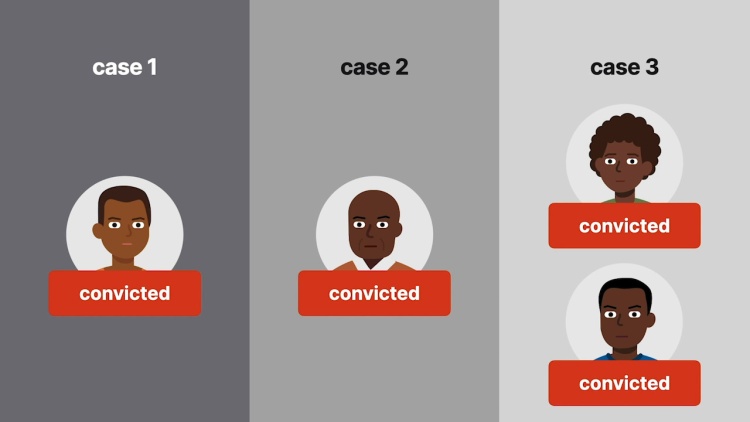Brown v. Allen
United States Supreme Court
344 U.S. 443 (1953)
- Written by Arlyn Katen, JD
Facts
Four Black men were sentenced to death in North Carolina, and their cases were consolidated: Clyde Brown and Raleigh Speller (defendants) were convicted of interracial rape; Bennie Daniels and Lloyd Ray Daniels (defendants) were 17 years old when they were jointly tried and convicted of murder. The North Carolina Supreme Court denied Brown’s and Speller’s state appeals on the merits, and the United States Supreme Court denied certiorari. The Danielses’ state appeal was denied as untimely. The defendants then filed habeas corpus petitions in federal district court, primarily alleging racist-jury-selection and coerced-confession claims. The federal district court reviewed the state trial-court record in each petitioner’s case and took additional evidence in the Speller and Danielses cases. The district court denied the petitions, ruling that the state court’s federal constitutional rulings were supported by the evidence and that the Danielses’ constitutional rights were not violated when their appeal was rejected as untimely. The district court also ruled in Speller’s case that the constitutional claims were unsubstantiated. The United States Court of Appeals for the Fourth Circuit affirmed, and the United States Supreme Court granted certiorari.
Rule of Law
Issue
Holding and Reasoning (Reed, J.)
Concurrence (Jackson, J.)
Concurrence (Frankfurter, J.)
Dissent (Black, J.)
What to do next…
Here's why 907,000 law students have relied on our case briefs:
- Written by law professors and practitioners, not other law students. 47,100 briefs, keyed to 996 casebooks. Top-notch customer support.
- The right amount of information, includes the facts, issues, rule of law, holding and reasoning, and any concurrences and dissents.
- Access in your classes, works on your mobile and tablet. Massive library of related video lessons and high quality multiple-choice questions.
- Easy to use, uniform format for every case brief. Written in plain English, not in legalese. Our briefs summarize and simplify; they don’t just repeat the court’s language.






